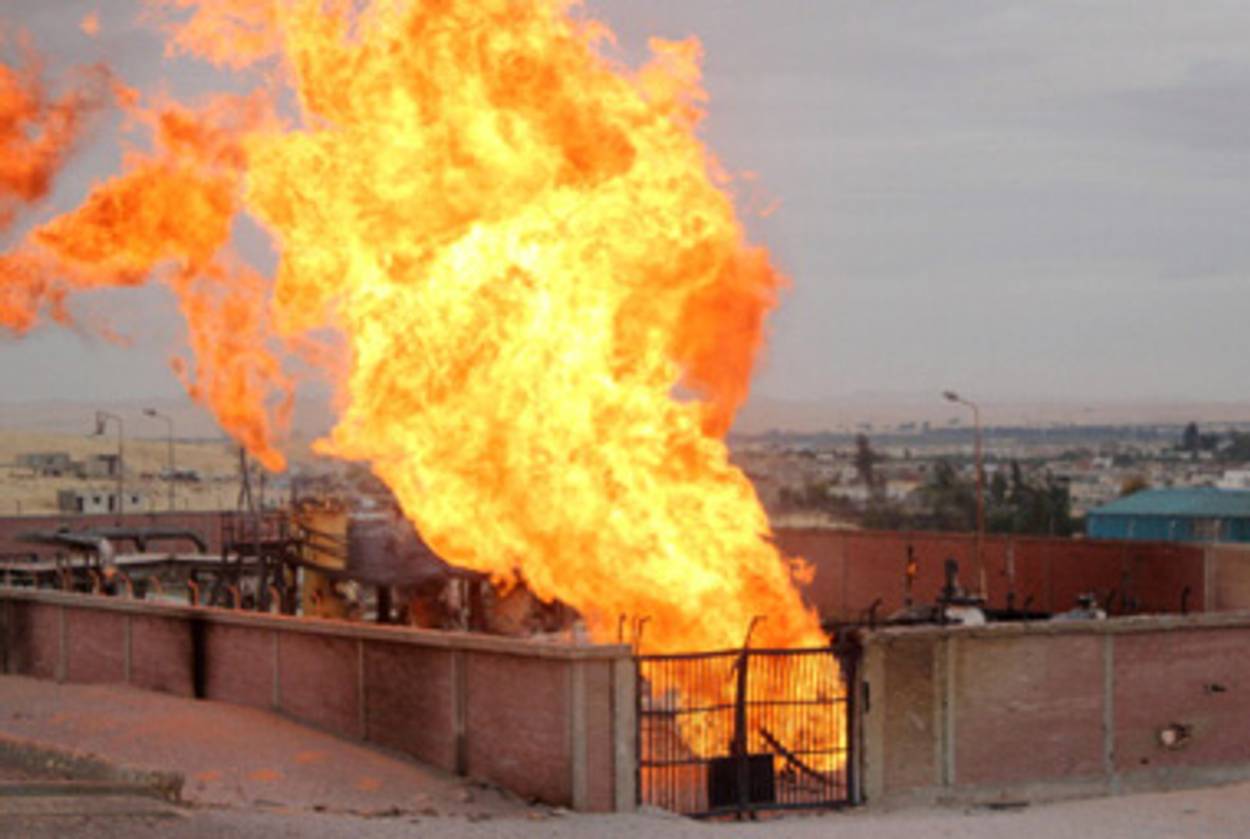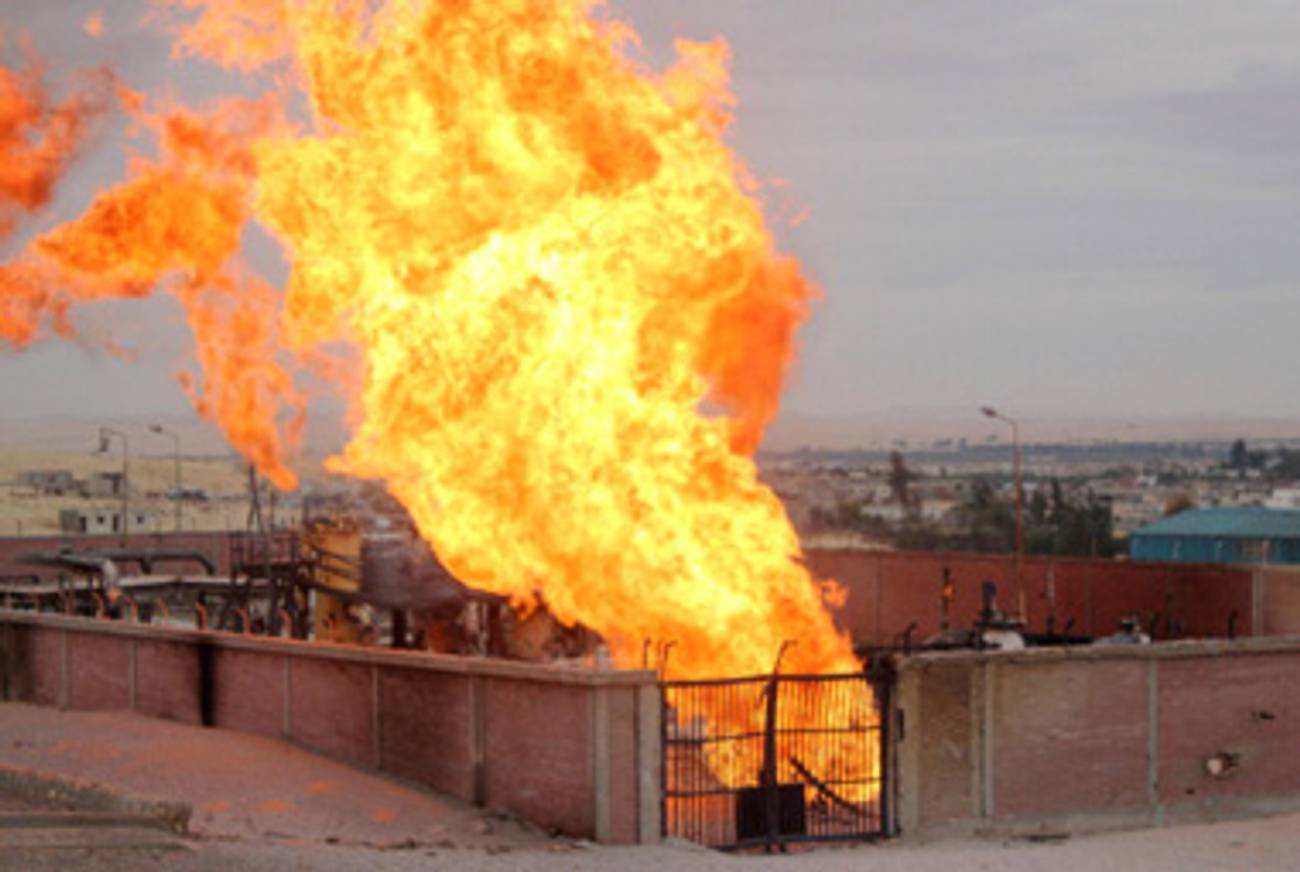For Israel, Gas to Come Less Naturally
How Egyptian regime change will squeeze Israeli energy




“There are some things that would have to be thought about or renegotiated,” Professor Samer Shehata said more than a month ago, when Hosni Mubarak was still Egypt’s president, discussing the prospect of a more democratic government. He then mentioned something that, compared to the Camp David treaty and the Gaza blockade, gets little attention: “The sale of natural gas to Israel is complicated,” he noted. “Many Egyptians would be willing to sell gas to Israel if they believed they were selling gas at international prices, as opposed to in an opaque, murky economic transaction that people seem to be left in the dark about—where no one really knows what the arrangements really are and the assumption, for good reason, is that the sale of gas is at below-market prices.”
Sure enough, we have received tentative evidence that the sale of Egyptian natural gas to Israel was corrupt.
Earlier this week, a Kuwaiti paper reported that Mubarak’s two sons received hundreds of millions of dollars in commissions from the sale of natural gas to Israel—specifically, that each got a 2.5 percent cut of 2005’s 15-year, $2.5 billion deal with East Mediterranean Gas, of which one of the sons is the largest shareholder.
Haaretz noted that Egypt supplies 40 percent of Israel’s natural gas, which uses it to generate 20 percent of its electricity.
So what happens now that such revelations have appeared—reportedly, the Kuwaiti paper learned of these kickbacks from interior department documents that presumably became more available ever since Mubarak’s three-decade reign ended? And what happens if and when Egypt’s government grows more responsive to its people? Likely, Israel will need to pay more for Egyptian natural gas or get less of it. Already its supply is less secure, as evidenced by the blowing up of a pipeline in the Sinai in the midst of the unrest leading to Mubarak’s ouster.
Fortunately for Israel, it has recently made several massive offshore gas discoveries; less fortunately, some of those fields are disputed by Lebanon—a disagreement widely seen to be a likely future beginning to war. It is remarkable that not three months ago, Israel had no concern for its continued steady supply of Egyptian natural gas.
Report: Mubarak’s Sons Received Millions of Dollars for Backing Israeli Gas Sales [Haaretz]
Related: The Next Lebanon War [Tablet Magazine]
Israeli Natural Gas Field Is a Significant Find [JTA]
Earlier: Why Egypt Can Handle Democracy Now
How Egyptian Unrest Affects Israel’s Energy
Marc Tracy is a staff writer at The New Republic, and was previously a staff writer at Tablet. He tweets @marcatracy.